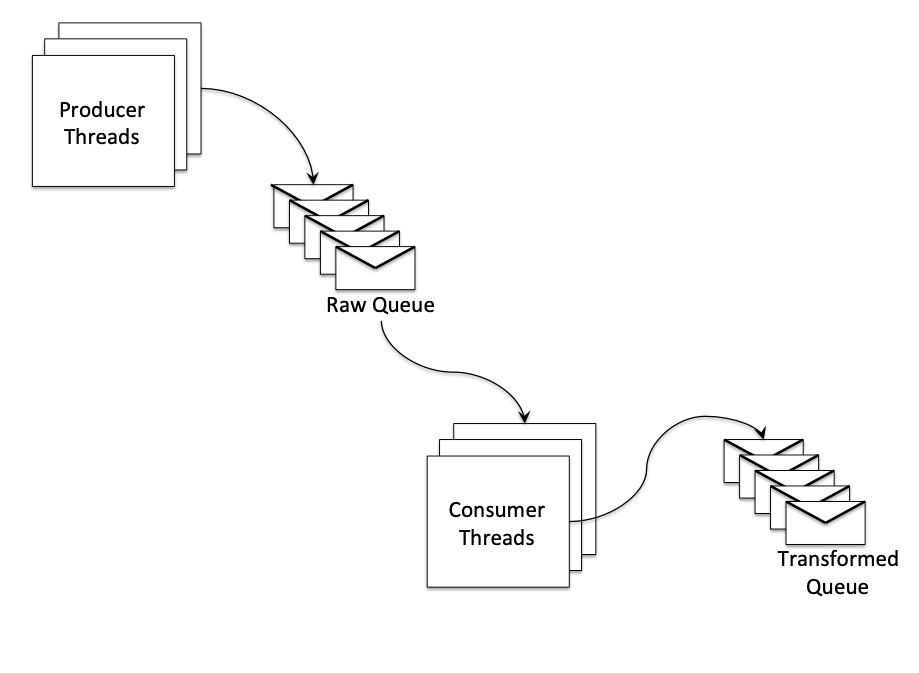Synchronized queue implementations provided by the Python Standard Library
Queue Module:
- The Queue module in the Python Standard library provides several kinds of queue classes. All these variants of queues are thread-safe but non-reentrant. They can be used in a producer(s)-consumer(s) threads environment, without writing any synchronization code. The synchronization is built-in to the queue implementations.
- The queue classes provided by the queue module include SimpleQueue, Queue, LifoQueue and PriorityQueue.
- The Python example provided here uses instances of the queue.Queue class. Queue.Queue is a FIFO based queue.
Producer-Consumer pattern:
- The producer threads produce messages into a shared queue. In the Python example provided here, the queue is identified with the name rawQueue.
- The consumer threads consume and process the messages from the shared queue and transform the raw messages into transformed messages. In the Python example, this queue is represented by transformedQueue.
- The raw queue is shared between multiple producer queues. They put raw messages into the queue.
- The raw queue is also shared between multiple consumer queues. They remove message from the raw queue and process them.
- The transformed queue is shared between multiple consumer queues.
- The above schematic can be extended into a workflow. In such workflow a group of threads will work on one kind of activity and another group of threads will work on another kind of activity. The data for each activity is the shared queue between two kinds of activity threads.
- In the final activity, shared queue is shared only between the threads that belong to the last activity. There will not be a set of consumer threads beyond this terminal point of the workflow.

Example:
|
# Example Python program that runs a producer thread and a consumer thread # A producer thread # A consumer thread # Write transformed message to the transformed queue print("CT:PQ:%d, ThreadId:%d"%(rawQueue.qsize(), threading.get_native_id())); # Create a queue for raw messages # Create a queue for transformed messages # Create a producer thread # Create a consumer thread # Start the producer and consumer threads consumerThread1.start(); # Wait for all the threads to complete |
Output:
|
PT:PQ:1, ThreadId: 116127 PT:PQ:2, ThreadId: 116127 PT:PQ:3, ThreadId: 116127 ... ... PT:PQ:19, ThreadId: 116128 PT:PQ:20, ThreadId: 116128 CT:PQ:19, ThreadId:116129 CT:TQ:1, ThreadId:116129 CT:PQ:18, ThreadId:116130 CT:PQ:17, ThreadId:116129 CT:TQ:3, ThreadId:116130 ... ... CT:PQ:2, ThreadId:116129 CT:PQ:1, ThreadId:116130 CT:TQ:19, ThreadId:116129 CT:TQ:19, ThreadId:116130 CT:PQ:0, ThreadId:116130 CT:TQ:20, ThreadId:116130 |